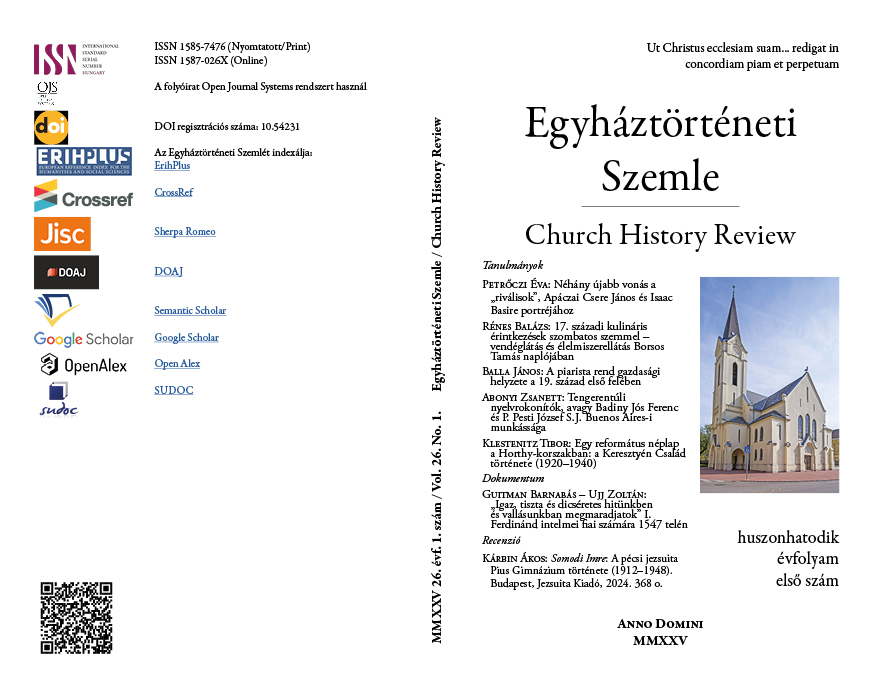Culinary Encounters of the 17th Century through Sabbatarian Eyes
DOI:
https://doi.org/10.54231/ETSZEMLE.26.2025.1.2Keywords:
transylvanian embassies, early modern diplomacy, hospitality, food supplyAbstract
With the post-protocol turn in modern diplomacy, diplomatic history has increasingly popularized those trends that no longer see food as exclusively part of ceremonial practice, but primarily as a potential tool of diplomacy. The diaries of one of our most renowned Transylvanian diplomats, Tamás Borsos, reveal how an early modern diplomat saw these gastronomic encounters: on their way to Constantinople in the 17th century, the men of the Transylvanian embassies in Transylvania consumed the dishes best suited to the local conditions (mutton and cow meat, salted fish, fish roe). The Transylvanian captains who arrived in the Ottoman capital maintained active diplomatic relations, lavishing their European contemporaries with reciprocal hospitality and food gifts (cheese, honey cake). The sharing and gifting of food served as a diplomatic tool in their activities in the Ottoman Porte, not only to gain the trust of their partners, but also to faithfully represent the hospitality and diplomatic importance of the Principality of Transylvania.
Downloads
Downloads
Published
Conference Proceedings Volume
Section
Categories
License
Copyright (c) 2025 Rénes Balázs (Szerző)

This work is licensed under a Creative Commons Attribution 4.0 International License.
The author(s) reserve the copyright of their work.
The Church History Review does not restrict the rights of authors to place their manuscripts or manuscript versions on preprint servers or other hosting. This applies generally to the following formats.
- Submitted version
- Accepted version (manuscript accepted by the author)
- Published version (Version of Record)









